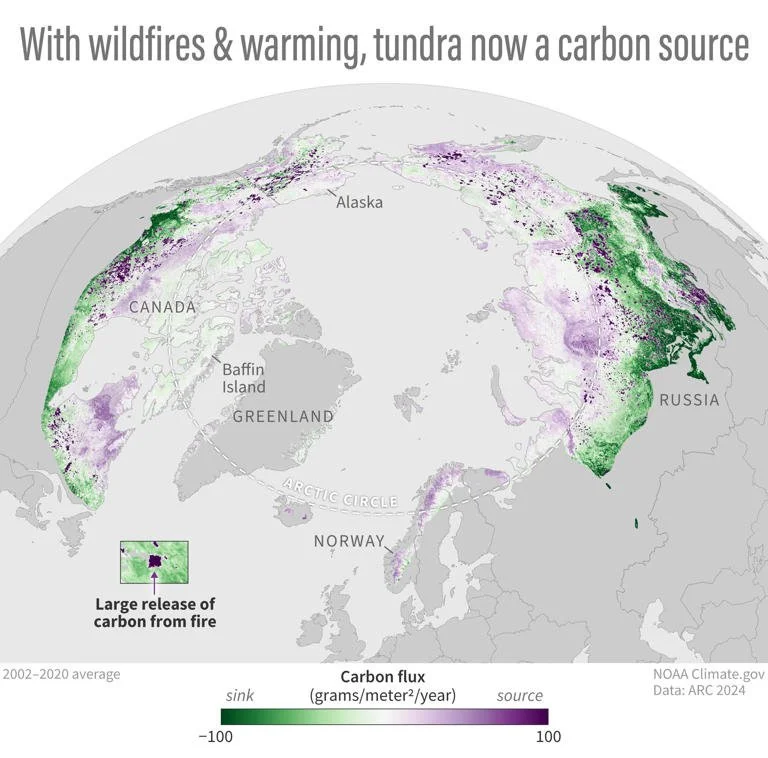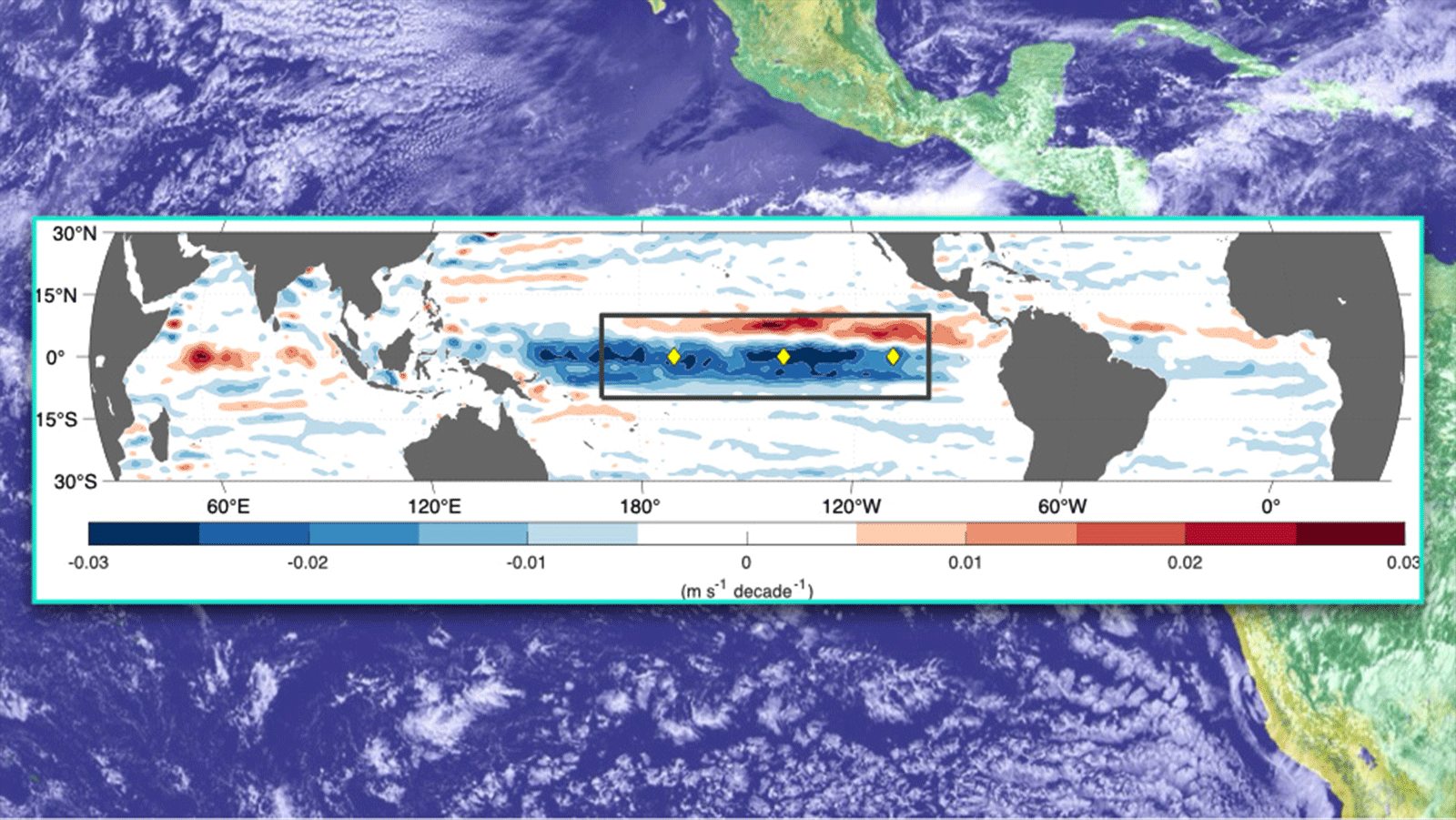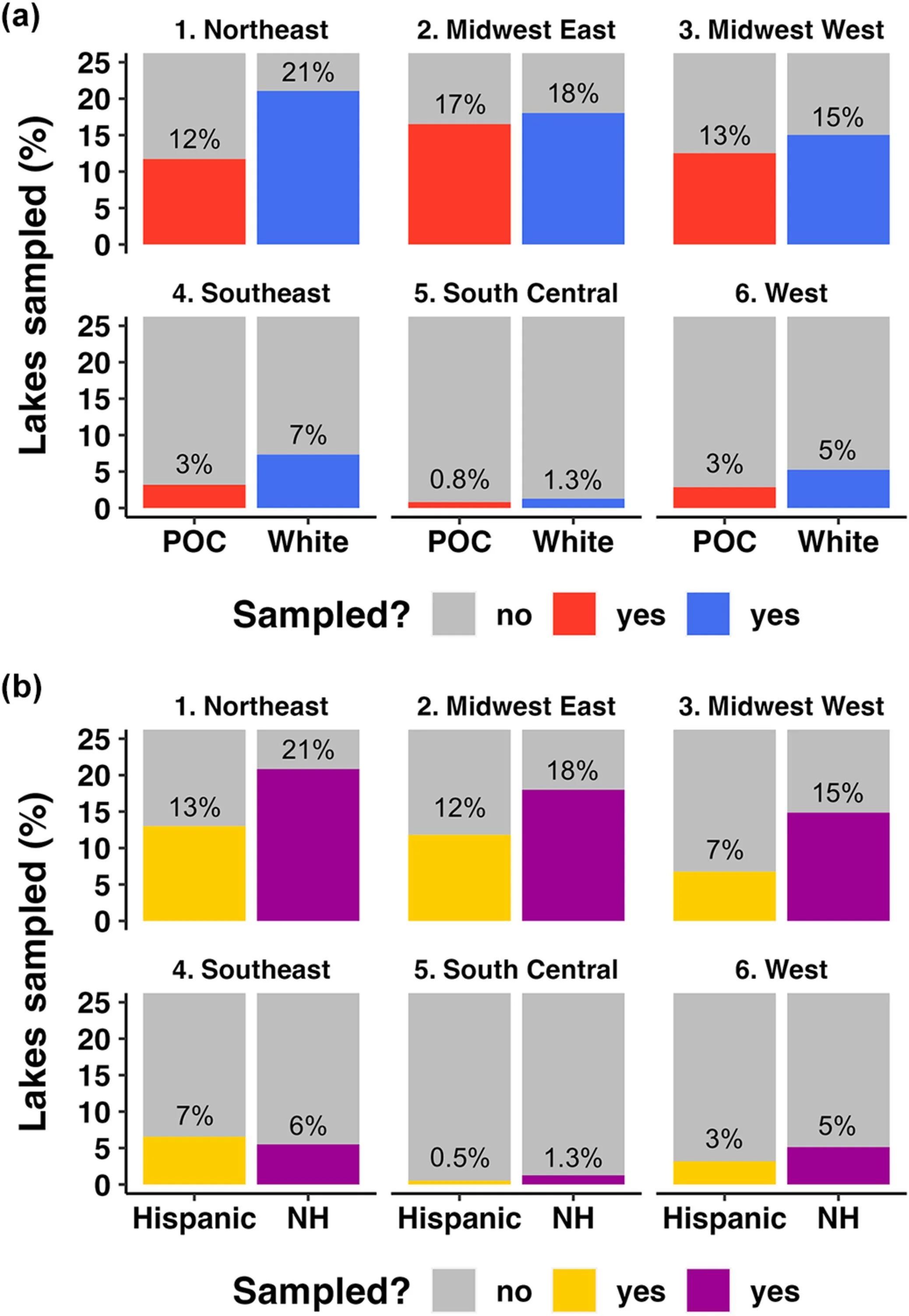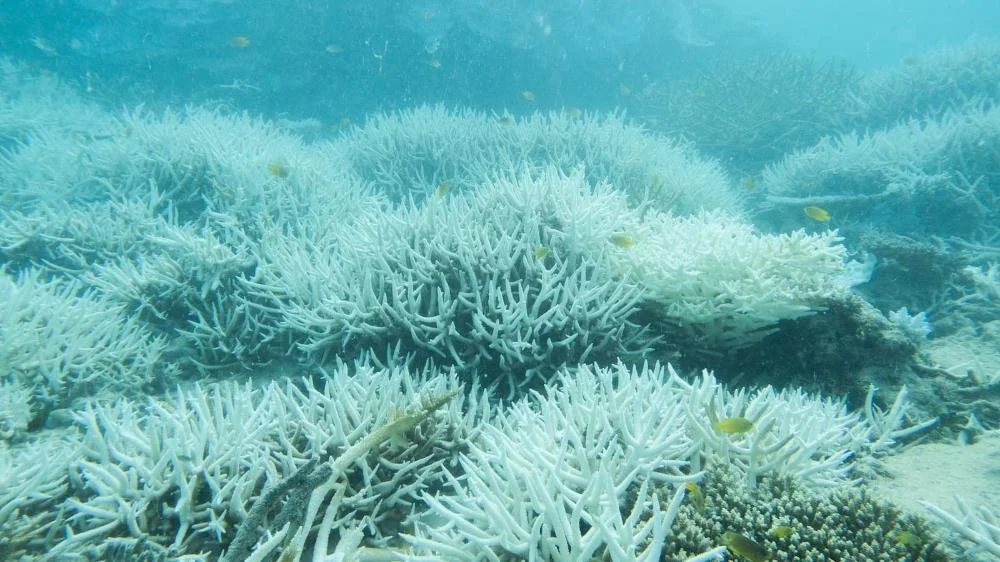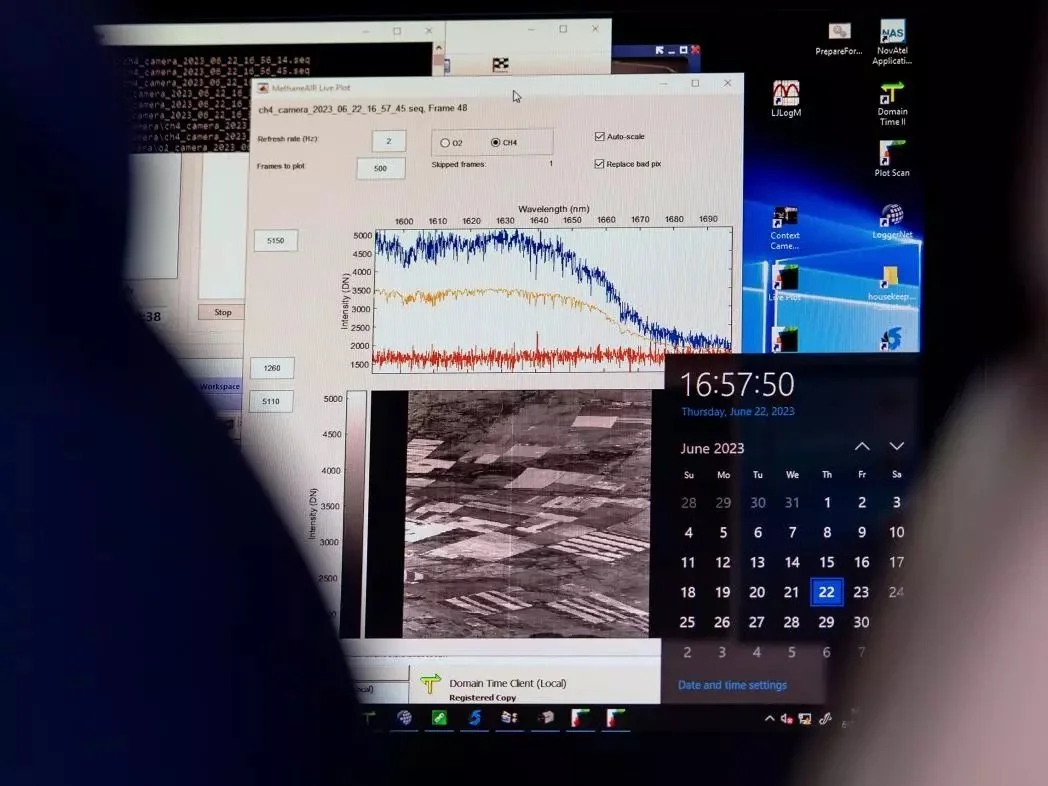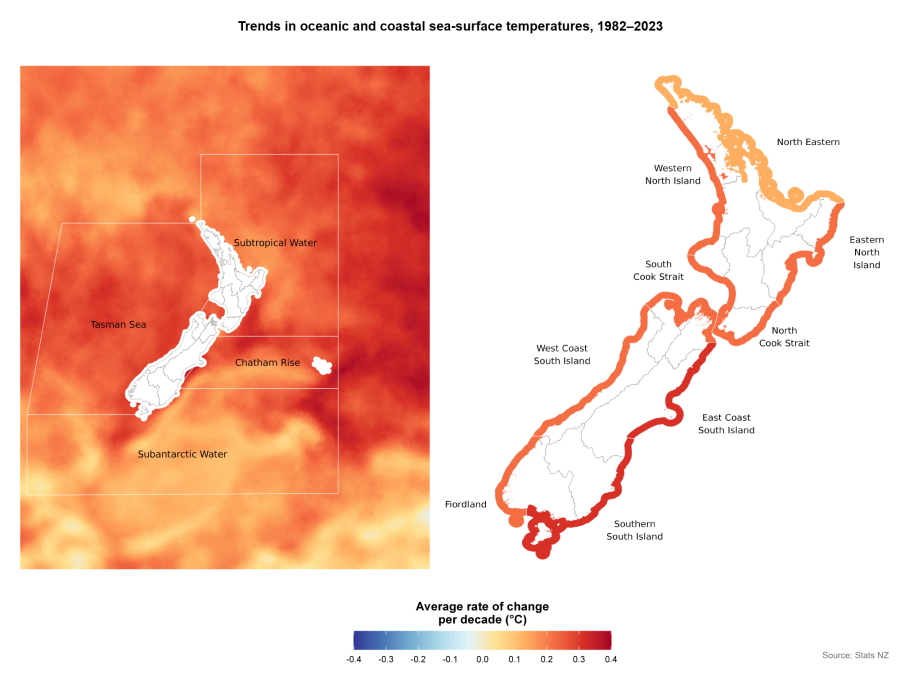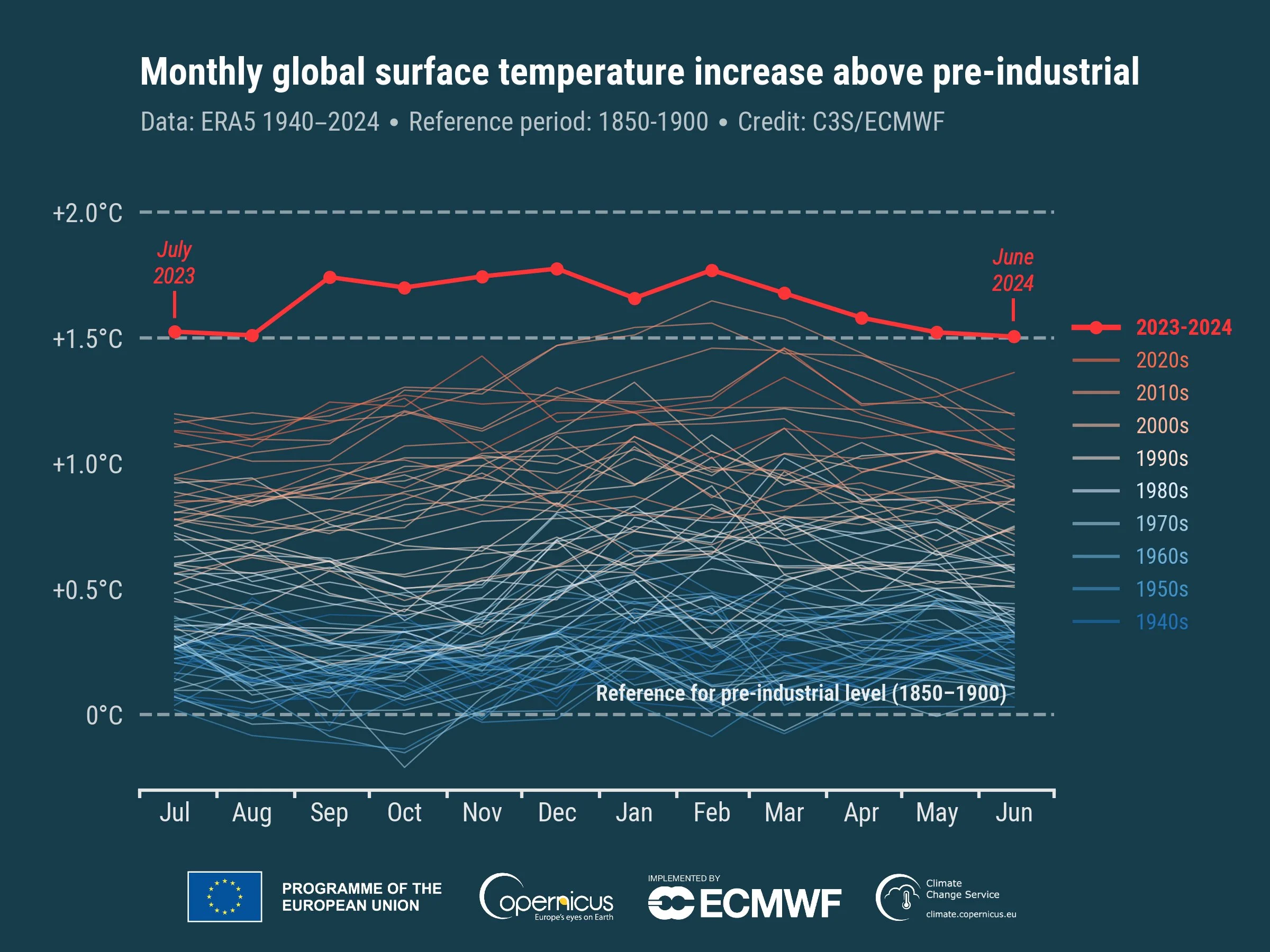Long-Term Observations In the News
LTOs In the News
Read on for long-term observations (LTOs) in the news.
The Guardian: Terrawatch | Kate Ravilious | February 26, 2025
Plants losing appetite for carbon dioxide amid effects of warming climate
We depend on land plants to act as a carbon sink. A new study in the journal Weather indicates that Earth’s plants and soils may be losing their ability to absorb rising carbon dioxide levels, with global carbon sequestration peaking in 2008 and then declining by about 0.25% each year. Curran and Curran analyzed atmospheric CO₂ data and found that while increased CO₂ and warmer temperatures originally boosted plant growth, ongoing climate impacts—such as wildfires, drought, storms, pests, and heat stress—have started to erode those gains. With emissions still rising by about 1.2% annually, the authors estimate a 0.3% annual reduction in emissions is needed merely to maintain current atmospheric conditions. Their findings underscore the importance of sustained, high-quality CO₂ measurements in detecting these shifts and highlight the urgent need for stronger climate action.
Nature Climate Change | Emanuele Bevacqua, Carl-Friedrich Schleussner & Jakob Zscheischler | February 10, 2025
A year above 1.5 °C signals that Earth is most probably within the 20-year period that will reach the Paris Agreement limit
A study in Nature Climate Change reveals that 2024 was the first calendar year where global temperatures rose above 1.5°C. This milestone likely signals that Earth has entered the 20-year period where average global temperature reaches the Paris Agreement’s lower limit. Researchers use global climate models to couple or combine ocean, atmosphere, and other physical and chemical interactions to better predict future conditions on Earth. The newest of these coupled models is called the Coupled Model Intercomparison Project Phase 6 (CMIP6). Drawing on observational data and the CMIP6 simulations, the research shows that past temperature thresholds have reliably marked the onset of these long-term warming phases. Their findings underscore the urgency of climate action, as a 1.5°C world brings heightened risks over the coming decades. Maintaining rigorous, long-term observations remains vital for detecting early warning signs and guiding effective mitigation and adaptation strategies.
The Guardian | Patrick Greenfield | January 21, 2025
A third of the Arctic’s vast carbon sink now a source of emissions, study reveals
A recent study published in Nature Climate Change reveals that over 30% of the Arctic’s tundra, forests, and wetlands have transitioned from a carbon sink to a net carbon source, rising to 40% when emissions from wildfires are included. Decades of monitoring data from 200 study sites between 1990 and 2020 across the Arctic underscore how rising temperatures are thawing permafrost and releasing previously stored carbon, accelerating global warming. The study highlights that Arctic soils, which contain close to half of the Earth's soil carbon pool—far more than what is currently in the atmosphere—pose a significant threat if released. As temperatures rise, previously frozen soils warm, allowing organic matter to decompose and emit carbon into the atmosphere, a process known as the permafrost-carbon feedback. These findings emphasize the urgent need for sustained observation efforts to track ecosystem changes and inform climate mitigation strategies as natural carbon sinks face increasing strain.
SciTechDaily | Northumbria University | December 20, 2024
CryoSat-2 and ICESat-2 Reveal Alarming Speed of Greenland’s Ice Meltdown
New data from CryoSat-2 and ICESat-2 reveals that the Greenland Ice Sheet has thinned by an average of 1.2 meters between 2010 and 2023, with significant thinning—up to 75 meters—observed at key outlet glaciers like Zachariae Isstrøm. The combined radar and laser measurements provide a precise view of the ice sheet’s volume changes, with total ice loss amounting to 2,347 cubic kilometers—enough to fill Africa’s Lake Victoria—over 13 years. The ESA-NASA partnership further synchronized the satellites' orbits, enhancing the ability to track ice loss with unprecedented accuracy. This research underscores the vital role of satellite coordination in monitoring polar ice changes and preparing for global sea level rise.
MSN | Emily Mae Czachor | December 10, 2024
Arctic tundra becoming a source of carbon dioxide emissions, NOAA warns
The 2024 NOAA Arctic Report Card highlights a troubling shift in the Arctic's carbon balance due to rising temperatures, permafrost thaw, and record-breaking wildfires. Once a significant carbon sink, the tundra is now emitting more carbon than it absorbs. In 2024, Alaskan permafrost temperatures were the second-highest ever recorded, while wildfire emissions across the Arctic reached the second-highest annual levels. The net increase in greenhouse gas emissions is accelerating global climate change. NOAA Administrator Rich Spinrad emphasized the urgent need to reduce fossil fuel pollution to mitigate further impacts.
Azernews | Alimat Aliyeva | November 27, 2024
Rapid growth of "Big Garbage Patch" records in Pacific Ocean
Recent observations by The Ocean Cleanup organization reveal a significant rise in plastic pollution within the Great Pacific Garbage Patch (GPGP). Between 2015 and 2022, plastic fragments increased nearly fivefold, from 2.9 kg to 14.2 kg per square kilometer, with fine plastic particles surging from 1 million to 10 million per square kilometer over the same period. Notably, 74-96% of the new plastic debris is estimated to originate from other parts of the world's oceans, transported by currents, highlighting the global nature of this issue. Approximately 300 million tons of plastic enter the world's oceans annually, and most of it persists for decades without decomposing. The exponential growth of plastic fragments in the GPGP is causing severe damage to marine ecosystems, with microplastics—comprising about 94% of the objects in the patch—often mistaken for food by marine life. This accumulation threatens both flora and fauna, with at least 40 different organisms now inhabiting the plastic debris.
Nature | Sebastian Sippel | November 20, 2024
Early-twentieth-century cold bias in ocean surface temperature observations
A recent study published in Nature reveals that existing estimates of ocean temperatures in the early twentieth century (1900-1930) are too cold, based on independent statistical reconstructions of global mean surface temperature from land and ocean observations. The study demonstrates that the ocean-based reconstruction is on average about 0.26°C colder than the land-based one during this period, despite high agreement in all other periods, suggesting a cold bias in historical sea surface temperature observations. This finding implies that the actual ocean warming since the pre-industrial era may be slightly less than previously thought.
NOAA | AOML Communications to Physical Oceanography | October 31, 2024
Study reveals acceleration in Pacific upper-ocean circulation over past 30 years
Thirty years (1993–2022) of concurrent satellite and in-situ observations show a significant acceleration of upper ocean circulation of the equatorial Pacific, driven by intensifying atmospheric winds and leading to increased oceanic currents that are both stronger and shallower. This shift is influencing global weather patterns, including the frequency and intensity of El Niño and La Niña events. The study highlights the interconnectedness of ocean circulation and climate, emphasizing the need for sustained observations to predict future changes.
MIT | Jennifer Chu | October 29, 2024
Oceanographers record the largest predation event ever observed in the ocean
A team of MIT and Norwegian oceanographers recently observed the largest predation event ever recorded: Atlantic cod feeding on over 10 million capelin, a small Arctic fish about the size of an anchovy, during the height of their spawning season off the coast of Norway. The event, observed with high-resolution sonic-based wide-area imaging, provides a rare glimpse into the scale and complexity of deep-sea predator-prey interactions. Such findings underscore the critical role of advanced oceanographic tools in uncovering the hidden dynamics of marine ecosystems.
NOAA | Theo Stein | September 26, 2024
Biden-Harris Administration, NOAA invest $6.7 million for ocean observing systems
The Biden-Harris Administration and NOAA are investing $6.7 million to enhance ocean observing systems used to investigate the ocean’s impact on climate and weather. This significant funding allocation demonstrates the government’s commitment to advancing our understanding of oceanic processes and their role in shaping global climate patterns. The investment will likely lead to improved data collection and analysis capabilities, enabling scientists to better predict and respond to climate-related challenges.
MSU | Emily Lorditch | September 9, 2024
MSU researchers find US lakes in communities of color are monitored less for water quality
Michigan State University researchers found that lakes in communities of color were significantly less monitored for water quality compared to lakes in white communities. Specifically, lakes in communities of color were three times less likely to be sampled at least once, and seven times less likely to have long-term monitoring data spanning 15 years or more. This disparity in monitoring makes it challenging to assess water quality in frontline communities, potentially putting these populations at greater risk if and when water quality issues arise.
NCAR | David Hosansky | August 22, 2024
Scientists propose guidelines for solar geoengineering research
Solar geoengineering has been proposed as a way to block solar radiation with sulfur particles, much as volcanic eruptions have done. An international team of scientists led by the NSF NCAR has published a paper proposing specific guidelines for evaluating stratospheric aerosol intervention (SAI) research, emphasizing the need to assess both the technical feasibility and potential ecological and societal impacts of injecting sulfur dioxide into the stratosphere to cool Earth by reflecting incoming solar radiation. The new paper outlines eight comprehensive research criteria for assessing SAI developments including monitoring by satellite observations validated with in situ measurements, and recommends regular, globally representative assessment reports. The purpose is to provide policymakers and the public with the best possible scientific understanding of this controversial geoengineering approach.
PBS | Suman Naishadham | August 7, 2024
The Great Barrier Reef waters were the warmest in 400 years over the past decade, Australian study finds
Ocean temperatures around the Great Barrier Reef have surged to their highest levels in 400 years resulting in severe coral bleaching events. Reconstructed sea surface temperature data from 1618 to 1995 coupled with sea surface temperature data from 1900 to 2024 demonstrate that this exceptional thermal stress over the last decade, attributed to anthropogenic climate change, jeopardizes the reef's survival. The study suggests significant threats to global coral reefs as they approach critical warming thresholds.
Environmental Defense Fund | Ritesh Gautam | July 31, 2024
New Data Show U.S. Oil & Gas Methane Emissions Over Four Times Higher than EPA Estimates, Eight Times Greater than Industry Target
New aerial measurements from MethaneAIR indicate that U.S. oil and gas producers are emitting methane at rates over four times higher than EPA estimates and eight times above their own emissions targets, highlighting a critical need for accurate emissions data collection and reporting. This new data will inform policy and regulatory developments, particularly as the EPA updates its reporting program to incorporate advanced measurement technologies such as satellite observations, ensuring transparency and accountability in emissions management.
The Washington Post | Kasha Patel | July 31, 2024
Antarctic temperatures soar 50 degrees above norm in long-lasting heat wave
East Antarctica is experiencing an extraordinary heat wave, with temperatures soaring over 50 degrees F (28°C) above average marking the region's second such event in just two years. Antarctic warming is progressing at twice the average global rate, raising concerns that these extreme temperature anomalies will occur more frequently, destabilizing critical polar systems like sea ice and atmospheric circulation which are essential for regulating global climate patterns.
The Guardian | Eva Corlett | July 9, 2024
New Zealand’s sea temperatures hit record highs, outstripping global averages
New Zealand's sea temperatures have surged to record highs, with some regions experiencing warming rates three times higher than the global average. This unprecedented increase in ocean temperatures, measured to be double the global per-decade average, highlights significant changes in marine conditions around the island nation.
Inside Climate News | Bob Berwyn | July 9, 2024
Average Global Temperature Has Warmed 1.5 Degrees Celsius Above Pre-industrial Levels for 12 Months in a Row
The Earth’s average temperature has exceeded 1.5 degrees Celsius above pre-industrial levels for the past 12 months, setting a new record. This persistent anomaly highlights the urgent need for long-term climate action.
NOAA | Matthew Rosencrans | July 3, 2024
Category 5 Hurricane Beryl makes explosive start to 2024 Atlantic season
Hurricane Beryl's record-setting rapid intensification to Category 5 in early July, 2024 highlights the importance of long-term climate observations. This unusual early development, driven by record-warm ocean temperatures and changing atmospheric conditions, underscores the need for ongoing monitoring to understand and prepare for evolving hurricane patterns due to climate change.
The Washington Post | Scott Dance | May 10, 2024
Hawaii’s Mauna Loa Observatory just captured ominous signals about the planet’s health
Hawaii’s Mauna Loa Observatory reports that atmospheric CO2 levels are rising at an unprecedented rate, faster than observed over 66 years. CO2 levels are nearing 427 parts per million in the most recent readings, more than 50% above pre-industrial levels.
The Guardian | Oliver Milman | May 9, 2024
Record-breaking increase in CO₂ levels in world’s atmosphere
A record-breaking surge in atmospheric CO2 levels, driven by fossil fuel use and the recent El Niño, has alarmed scientists. The global average concentration in March increased by 4.7 ppm compared to March last year, an annual increase that has never been observed before.





